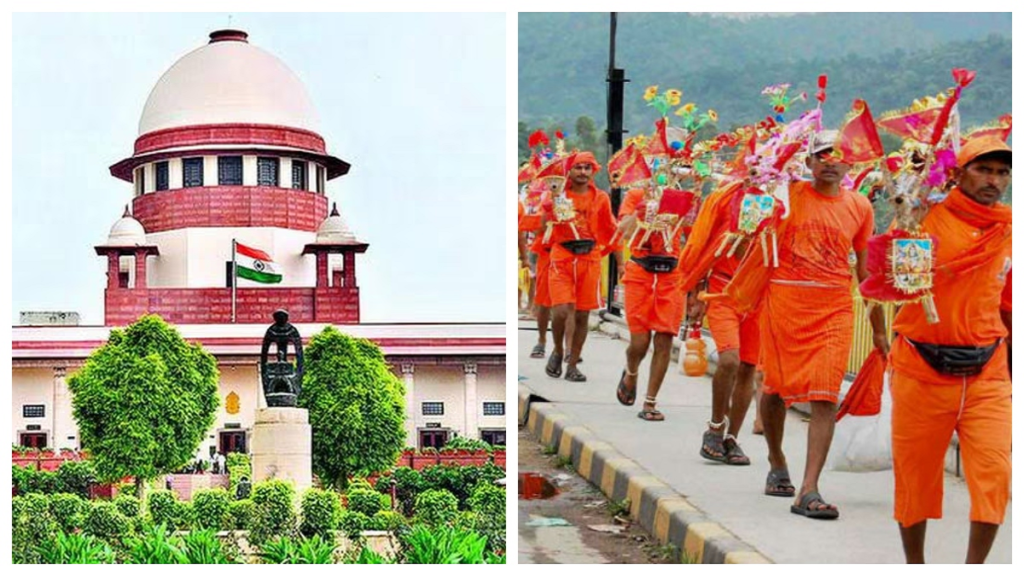New Delhi. On Monday, the Supreme Court gave a big blow to the Yogi government and stayed the implementation of the order to shopkeepers to put their name plates on the Kanwar Yatra route. The court emphasized that shopkeepers should tell what kind of food they are selling, but it is not necessary to display their name. During the hearing, the lawyer of the petitioners highlighted that two states have already implemented such orders and two more states are planning to do so. The lawyer told that instead of municipal officials, the police is implementing these actions, which is pushing minorities and Dalits to the margins. He first read the order of Muzaffarnagar Police, after which Justice Hrishikesh Roy asked whether it is an official order or a press release. The lawyer clarified that he was reading a press release, which said that earlier also improper food was given to Kanwar pilgrims, due to which it was necessary to display the name of the seller. He questioned why it is necessary to display the name of the seller when it is sufficient to mention whether the food is vegetarian, pure vegetarian or Jain.
Breaking: “Do Not Force The Owners Of Eateries Along The #KanwarYatra Route To Display Their names Outside Shops”, Supreme Court Orders In Interim To Uttar Pradesh Uttarakhand and Other governments https://t.co/BqKjPxRuia
— LiveLaw (@LiveLawIndia) July 22, 2024
Instructions voluntary or mandatory?
Justice Roy pointed out that the directive was described as voluntary. In response, Abhishek Manu Singhvi, counsel for the petitioner, said it was mandatory. Advocate C.U. Singh argued that the police had no legal authority to impose such measures, saying the Haridwar police order mentioned coercive action. He emphasised that the directive had affected livelihoods across thousands of kilometres of the route. Singhvi said shopkeepers and employees were required to display their names, calling it “boycott based on identity”. He argued that not displaying the name could lead to closure of business, while displaying it could lead to loss of sales. Justice Bhatti cautioned against exaggerating the issue, saying the safety of pilgrims should have been considered before issuing the order.
What did Singhvi say?
Singhvi said Muslims, Christians and Buddhists have traditionally served Kanwar pilgrims. He argued that the emphasis should be on specifying “pure vegetarian” instead of the shopkeeper’s name. He claimed that the directive was an attempt at economic boycott and promoted untouchability. Justice Bhatti, in response, asked if people who eat meat also do not insist on halal meat. C.U. Singh pointed out that a similar directive was issued to shopkeepers in Ujjain. Justice Roy questioned whether Kanwariyas can expect food from vendors of a particular community or grains grown by a particular community. Singhvi confirmed that this was his argument. Justice Bhatti’s personal preference Justice Bhatti shared a personal anecdote about preferring to eat at a Muslim vegetarian restaurant in Kerala because of the cleanliness there.
